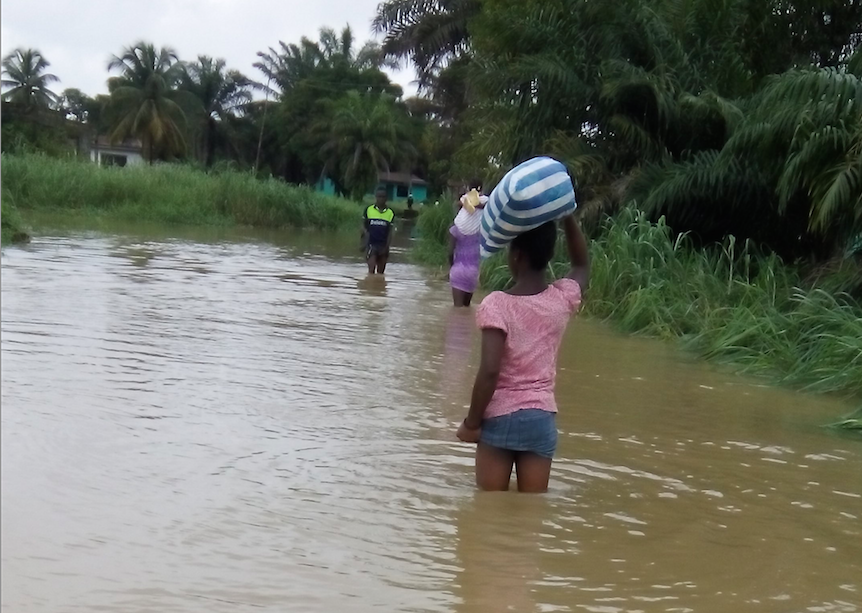Monrovia is exposed to natural human threats, mainly floods, storms, erosion and famine. The risk of flood has increased recently due to several factors; poor drainage systems, poor waste management, deforestation and obstruction of mainstream water path by slum dwellers. The Pipeline Community like other communities suffers with flooding every rainy season and all measures put in place have proven fruitless as evidenced by the related events every year. If this concern is to be addressed then, it has to start now from our well meaningful friends and partners across the globe.
More than 50% of the inhabitants of Monrovia and its surrounding communities have always suffered floods and poor sanitation during the rainy season due to either no drainage systems or inadequate drainages systems. Due to these conditions. Some homes have been devastated; there has been infant death, unsafe drinking water, outbreaks of cholera and the aftermath leaves some victims with no home.
The heavy downpour of rain in this community and its surroundings has destroyed all pathways and wooden bridges connecting to the main streets and its neighbors, thereby making it more difficult for children between the ages 4 and 12 to freely move about. When this occurs, the environment becomes very unfriendly for the survival of the children because they have nowhere to play or to be sheltered and families who may have relatives outside the community may have to relocate their children or they remain within their unsafe shelters during the entire 6 months of rain and flood. These shelters are suggested to be a strong and consistent indicator of risk for asthma and other respiratory diseases.
The flood as depicted in the photos here (Flooding Photos) does not only hinder movements but it also sweeps away people’s belongings and affects all schooling activities.

The rage of the windstorms and thunderstorms during the peak of the rainy season remains a challenge and it remains unmanageable far after the rain due to the cleanup required in the aftermath. Erosion in most cases is influenced by heavy rain fall and this has posed a serious environmental threat for the entire city especially for the Pipeline community. This community is dominated by low structures with weak foundations, structures that have high levels of zinc, and mud structures so as a result; the erosion makes lots of residents homeless which subjects them to seeking refuge either in a deserted structure or a congested one which is a perfect medium for the spread of contagious disease.
No one humanistic needs of these people can be over emphasized than that of feeding and supply of safe drinking water. The floods usually wash away gardens and pollute safe water; therefore these people will need food and the provision of safe drinking water for their families. This call for Rapid Response victims of flood in Liberia, attempts to address the need of just a small portion of a population estimated at 20,000 people residing in the Paynesville, Pipeline Community. This community is one of the most densely populated communities in the Paynesville Township. The targeted beneficiaries of this rapid response are widows and their families who are already being supported by MOWCF in this community.
We are appealing to our partners and donors to see the need to support an elaborate proposal that will permanently address the need of the entire population of Pipeline Community but for now, this quick impact project remains our focus as it directly impacts families associated with our organization.
By reaching this goal we have the ability to provide 6 months of shelter for three displaced widows.
Betty Gaye
Susan Blawou
Susanna Gbomina
